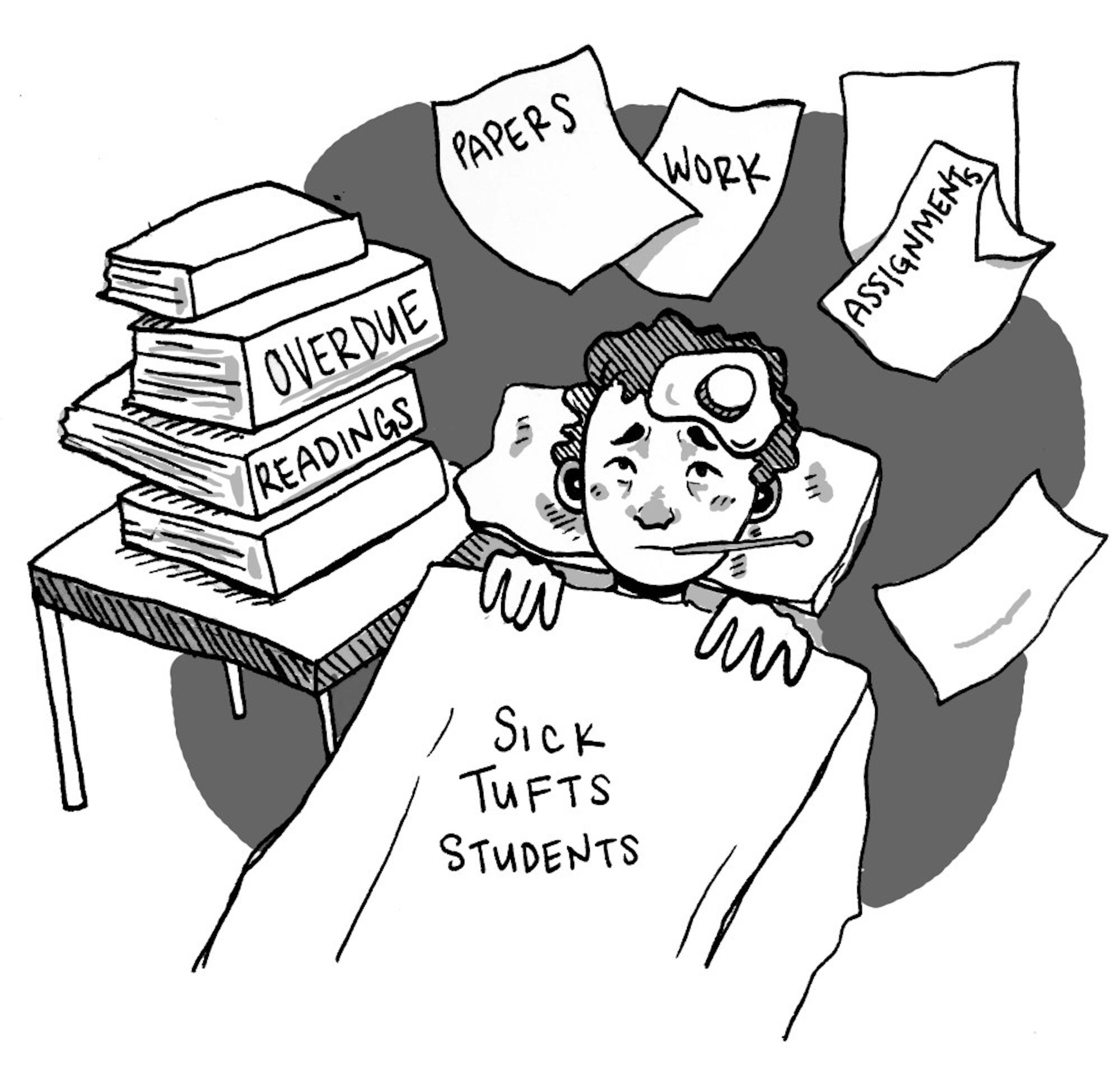Being a college student entails living in close-quarters, experiencing much stress and often getting less-than-ideal amounts of sleep. These characteristics of university life lead waves of sickness to move through campuses, often causing students to miss classes in order to recover. Although perhaps it is reasonable for professors to expect students to make up work missed during short absences, longer absences due to more severe, prolonged illnesses require different accommodations that Tufts does not adequately provide. Its current exemption system unfairly places the burden on students, for they must advocate for themselves and actively seek accommodations while they should be recovering: Tufts must revamp this system to value student wellness above the convenience of the university’s administration and professors.
Inconsistent policy plagues the current process for acquiring accommodations. The general policy for student accommodations states that "students are expected to negotiate any adjustments directly" with their professor. As such, accommodation protocol is not uniformly honored across various departments and courses but rather professors often make unilateral and course-specific decisions about accommodations for coursework. Such policies seem to favor the busy schedules of professors at the expense of students who, as a result, face difficulty when rescheduling exams or making up coursework. Unlike health professionals, professors may not understand the severity of illness, yet the current system tasks professors with the responsibility of determining the workload and rigor that recovering students can manage.
Further, this system disadvantages sick students because it requires them to effectively negotiate, a cognitive ability, which is compromised by illness. The university’s policy signifies that the acquisition of accommodations hinges on an ill student’s ability to self-advocate, which puts them in an unfair, stressful position while they are already struggling. In addition, the lack of uniformity between professors’ policies makes these negotiations more difficult and needlessly complicated.
These complications and inadequacies within the accommodations process also affect student health. The protracted process to receive permissions often forces students to attend classes while ill, which increases the risk of their illness spreading to other students. Self-advocating and working instead of resting also affects the recovery of sick students: Documented links between stress and health suggest that additional stress from classwork and negotiations hinders recovery. If recovery periods last longer and accommodations do not sufficiently allow students to catch up on missed content, students will fall further behind in their classes, perform worse academically and have a turbulent return to life as a healthy university student.
Given this insufficient, complicated process, Tufts must revise its health accommodation policy in order to protect student health and overall wellness. In order to reduce student stress and simplify the process of obtaining exemptions, it is critical that an academic dean or health services employee actively oversees this process and advocates for students in need. This individual would work with Student Services, Health Services professors and the student to gather documentation, arrange for timely exemptions and coordinate makeup work. This change would reduce miscommunication among departments, remove the process’s burden for recovering students and thus alleviate the associated stress and pressure.
If Tufts wishes to be a truly student-centered institution, it must prioritize the wellbeing of its students, and optimizing student wellness means allowing students to fully recover from illness without added stress. Student health and safety must become a priority through the adjustment of Tufts’ health policies, for only then can Tufts fully practice a “student-first” philosophy.
Editorial: Tufts must value student wellbeing by revising health accommodations system




